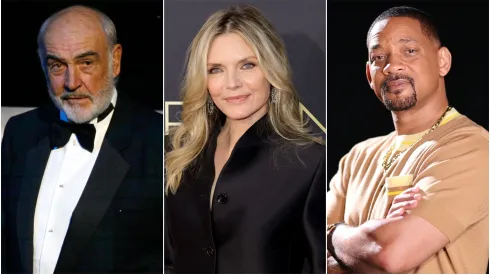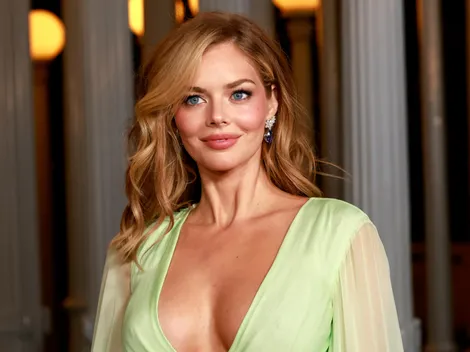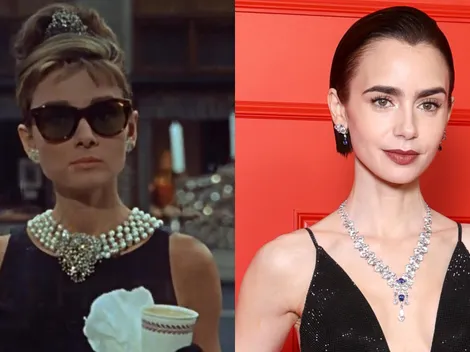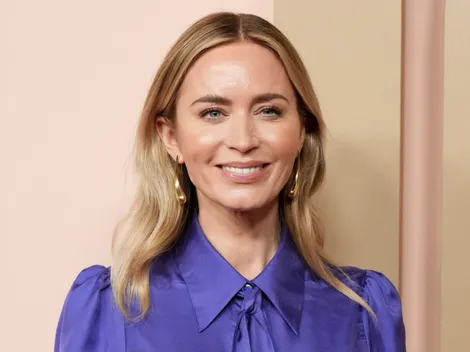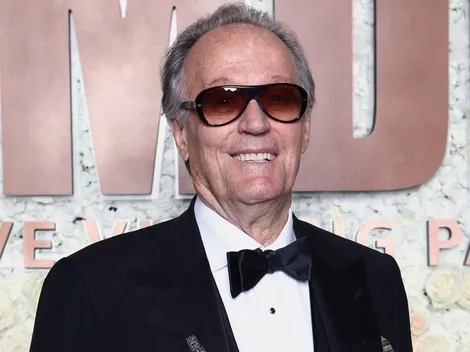Hollywood’s history is littered with roles that slipped through famous fingers, moments when ambition, timing or sheer instinct rerouted entire careers. Some of those choices looked catastrophic on paper; others made sense in the moment. But each rejection eventually shaped the industry in ways no one foresaw.
What emerges from these missteps is less a catalogue of errors and more a portrait of how unpredictable the business truly is. Behind every film classic or breakout performance lies a trail of near-misses, awkward pass-ups and opportunities that migrated to someone else at precisely the right time.
1. Will Smith turning down The Matrix (1999)

Will Smith (Source: Matt Winkelmeyer/Getty Images)
Before The Matrix rewrote the rules of sci-fi, Will Smith had the chance to anchor its entire universe. The Wachowskis pitched him their vision — revolutionary, strange, wrapped in philosophical ambition — and he stepped away, unconvinced it would land. The role moved on to Keanu Reeves, whose calm intensity fused perfectly with Neo’s quiet awakening.
Smith later joked that his version might have derailed the film entirely, a rare case where passing on a blockbuster became a strangely admirable act of self-awareness. In hindsight, the rejection didn’t just shape Smith’s path — it solidified one of the most defining roles of its era.
2. Gwyneth Paltrow passing on Titanic (1997)

Gwyneth Paltrow (Source: Amy Sussman/Getty Images)
Among the many casting crossroads behind Titanic, Paltrow’s quiet step away from the role of Rose remains one of the industry’s most intriguing almost-stories. The reasons have never been fully spelled out — timing, instinct, or simply the chaos of a packed career.
The part ultimately found Kate Winslet, whose performance carried a mix of fragility and stubbornness that became inseparable from the film’s legacy. In a career filled with bold choices, Paltrow’s “no” stands as one of those enigmatic moments Hollywood loves: a single pass that redirected the cultural tide.
3. John Travolta rejecting Forrest Gump (1994)

John Travolta (Source: Emma McIntyre/Getty Images for Academy Museum of Motion Pictures)
As Forrest Gump took shape, Travolta was among the early contenders for the role — a part that required innocence, sincerity, and a tone that could slip easily into sentiment without losing grounding. He declined, and Tom Hanks stepped in with a performance that anchored the film’s emotional center.
Travolta later acknowledged the misstep, but by then the movie had already woven itself into the fabric of American pop culture. It’s one of those casting notes that feels impossible to imagine now, a reminder of how fragile the path to an iconic performance can be.
4. Emily Blunt missing out on Iron Man 2 (2010)

Emily Blunt (Source: Amy Sussman/Getty Images)
Blunt’s near-casting as Black Widow wasn’t a matter of hesitation — it was a scheduling collision that shut the door before it fully opened. The role then shifted to Scarlett Johansson, who built the character with a cool, coiled presence that carried through more than a decade of Marvel storytelling.
Blunt has spoken openly about the disappointment, though it came at a moment when her own career was rapidly broadening. Still, the ripple effect is undeniable: a single conflict reshaped a cornerstone of Marvel’s expanding world.
5. Denzel Washington passing on Se7en (1995)

Denzel Washington (Source: Matt Winkelmeyer/Getty Images)
Washington received the script for Se7en when the project was still a raw, unsettling thriller. He felt its violence was too stark and stepped away, choosing a different path at that moment in his career.
Brad Pitt eventually took the role, bringing a tense, restless energy that played perfectly against Morgan Freeman’s steady calm. Years later, Washington admitted he regretted the decision — the kind of retrospective sting that only grows when the film in question becomes a defining work of its genre.
6. Leonardo DiCaprio nearly joining Hocus Pocus (1993)

Leonardo DiCaprio (Source: Amy Sussman/Getty Images)
Before What’s Eating Gilbert Grape positioned him as one of the most promising young actors of the ’90s, DiCaprio was offered a major role in Hocus Pocus. He turned it down, choosing instead to chase projects he felt carried more emotional weight.
The move looked risky — he walked away from a guaranteed studio hit for a film many doubted would connect. But that gamble set the tone for DiCaprio’s early career: instinct over opportunity, character over spectacle. And in the end, the rejection steered him exactly where he needed to be.
7. Matt Damon and Ben Affleck passing on Brokeback Mountain (2005)

Matt Damon and Ben Affleck (Source: Kevin Winter/Getty Images)
Before the eventual casting of Heath Ledger and Jake Gyllenhaal, the script for Brokeback Mountain floated through several hands in Hollywood. Damon and Affleck were among those approached, both ultimately drifting away from the project.
Their absence opened the door to a pairing that reshaped the film’s emotional gravity. Ledger and Gyllenhaal’s performances pushed the story into awards-season history, their chemistry so distinct that imagining any alternative now feels like rewriting its core identity.
8. Michelle Pfeiffer turning down The Silence of the Lambs (1991)

Michelle Pfeiffer (Source: Emma McIntyre/Getty Images for TCM)
Pfeiffer was offered the role of Clarice Starling but turned it down due to the film’s unsettling darkness. At the time, the project felt too grim, too steeped in psychological violence.
Her refusal redirected the script toward Jodie Foster, whose focused intensity and quiet vulnerability became inseparable from the movie’s DNA. The shift illustrates how an actor’s instinctive boundary can define the tone of a classic — and sometimes allow another performer to create a career-defining moment.
9. Tom Selleck losing Indiana Jones (1981)

Tom Selleck (Source: Jamie McCarthy/Getty Images)
Selleck didn’t exactly reject the role — he was forced to step away when CBS insisted he honor his Magnum, P.I. contract. What followed is one of the most famous “almost-castings” in film history.
Harrison Ford stepped in, bringing a mix of roguish charm and weary intelligence that became the heartbeat of the franchise. Selleck’s missed opportunity remains Hollywood lore, a reminder that timing, not talent, often draws the line between legend and footnote.
10. Anne Hathaway turning down Knocked Up (2007)

Anne Hathaway (Source: Theo Wargo/Getty Images)
Hathaway was initially in talks to star opposite Seth Rogen, but she ultimately left the project over creative differences, particularly regarding the film’s depiction of childbirth.
Her exit led to Katherine Heigl’s casting, reshaping the movie’s dynamic and giving Heigl one of the most visible roles of her career. It’s a case where a quiet, principled refusal opened a door for another actor — and subtly repositioned the careers of both.
11. Sean Connery walking away from The Lord of the Rings (2001)

Sean Connery (Source: Phil Cole/Getty Images)
Connery was offered the role of Gandalf — along with a massive profit share — but turned it down after admitting he simply didn’t understand the script or the world Tolkien had created.
His refusal cleared the path for Ian McKellen, whose interpretation became a benchmark for modern fantasy: wise, wry, and quietly magnetic. Connery’s exit is often cited as one of Hollywood’s most expensive “no’s,” but also a lesson in how even icons sometimes fail to see the future taking shape.
12. Julia Roberts rejecting Shakespeare in Love (1998)

Julia Roberts (Source: Kate Green/Getty Images for BFI)
Roberts was once attached to star as Viola, but the production unraveled when casting disagreements and creative shifts collided. The film moved forward years later with Gwyneth Paltrow, whose performance helped carry it through a sweeping awards season.
Roberts’ departure became a story of timing — of a film that only found its rhythm once it slipped away from its original design and assembled a new cast that matched its whimsical, theatrical tone.
13. Christian Bale passing on James Bond (mid-2000s)

Christian Bale (Source: Matt Winkelmeyer/Getty Images)
Before Daniel Craig locked down the role, Bale was reportedly approached but distanced himself from the franchise, concerned that playing Bond might trap him in a typecast image he’d been carefully avoiding.
His refusal redirected him toward darker, more transformative roles — including Batman Begins — while Craig’s Bond reimagined the character with a grit and physicality the series had long avoided. Two careers diverged, each finding sharper definition because of that early decision.
14. Reese Witherspoon declining Scream (1996)

Reese Witherspoon (Source: Jamie McCarthy/Getty Images)
When Wes Craven was searching for his lead, Witherspoon’s name floated onto the shortlist, but she stepped away from the project, reportedly uninterested in joining a slasher at that stage in her career.
Neve Campbell ultimately became the face of the franchise, blending vulnerability with resolve in a way that redefined the “final girl” archetype. Witherspoon’s pass didn’t slow her trajectory — it simply redirected it — but the choice left a lasting imprint on horror history.
15. Al Pacino turning down Star Wars (1977)

Al Pacino (Source: Roy Rochlin/Getty Images for Tribeca Festival)
Pacino was offered the role of Han Solo at a time when George Lucas was still piecing together his galaxy far, far away. Pacino later joked he didn’t understand the script and wasn’t sure what Lucas was trying to do.
His hesitation opened the door for Harrison Ford — again — whose rugged charm and improvisational instinct became fundamental to the trilogy’s energy. Pacino’s “no” is one of cinema’s great fork-in-the-road moments, shaping not only a saga but the persona of one of its most iconic heroes.
16. Jake Gyllenhaal nearly replacing Tobey Maguire in Spider-Man 2 (2004)

Jake Gyllenhaal (Source: Amy Sussman/Getty Images)
During pre-production, Maguire’s back injury placed the franchise on uncertain ground, and Gyllenhaal emerged as the studio’s backup. For a brief moment, the idea of a new Peter Parker seemed not just possible, but likely.
Maguire ultimately recovered, reclaiming the suit and preserving the continuity that helped define early-2000s superhero cinema. Gyllenhaal’s near-casting remains one of those quiet Hollywood detours — a glimpse at an alternate universe where the web-slinger carried a very different kind of intensity.
17. Halle Berry turning down Speed (1994)

Halle Berry (Source: Pascal Le Segretain/Getty Images)
Berry was approached for the role of Annie Porter but passed on the project, unsure of how the high-concept action would translate on screen. The part eventually went to Sandra Bullock, who delivered a performance that launched her into mainstream stardom.
Berry’s hesitation is often cited as one of the great “almosts” of ’90s action films — a moment where a single instinctive choice helped create one star while gently rerouting another’s path.
18. Kevin Costner rejecting The Shawshank Redemption (1994)

Kevin Costner (Source: Araya Doheny/Getty Images for The Art of Elysium)
Costner had the script in his hands but opted to focus on Waterworld, a decision that has followed him in almost every retrospective on the film. Tim Robbins stepped into the role of Andy Dufresne, bringing a quiet interiority that became the backbone of one of cinema’s most beloved dramas. Costner’s decision stands as a testament to how unpredictable career math can be: a mega-budget gamble exchanged for a future classic.
19. Winona Ryder passing on The Godfather Part III (1990)

Winona Ryder (Source: Vittorio Zunino Celotto/Getty Images)
Ryder was originally cast as Mary Corleone but withdrew at the last moment due to exhaustion and health concerns after a demanding year of work. Her exit forced Francis Ford Coppola to recast quickly — choosing his daughter, Sofia Coppola.
The decision reshaped the film’s legacy, for better and for worse. Ryder’s absence became one of those turning points whose ripples extended far beyond performance, touching the film’s critical reception and Hollywood’s perception of familial casting.
20. Russell Crowe turning down Wolverine (2000)

Russell Crowe (Source: Frazer Harrison/Getty Images)
Crowe was among the first actors considered for Wolverine when X-Men was assembling its cast, but he declined, reportedly uninterested in another gruff, animal-coded character after Gladiator.
Hugh Jackman, a relatively unknown actor at the time, stepped in — and the role became synonymous with him for nearly two decades. Crowe’s pass is one of those career footnotes that inadvertently forged a modern franchise identity.
21. Sarah Michelle Gellar walking away from Clueless (1995)

Sarah Michelle Gellar (Source: Kevin Winter/Getty Images)
Gellar was approached to play Cher Horowitz but had a scheduling conflict with All My Children. At the time, few could predict how iconic the film — and the character — would become.
Alicia Silverstone stepped in, crafting a performance that threaded satire with sincerity and helped define mid-’90s teen culture. Gellar’s near-casting is one of those Hollywood crossroads where timing, rather than talent, quietly determines cultural impact.
22. Eddie Murphy turning down Who Framed Roger Rabbit? (1988)

Eddie Murphy (Source: Presley Ann/Getty Images for Netflix)
Murphy was offered the role of Eddie Valiant, but he passed, later admitting he regretted it after seeing the film’s bold blend of animation and live-action. Bob Hoskins ultimately took the part and delivered a grounded, emotionally textured performance that balanced the film’s technical spectacle. Murphy’s refusal highlights how experimental the project seemed at the time — and how unpredictable innovation can look before history has its say.
23. Jennifer Lawrence passing on Twilight (2008)

Jennifer Lawrence (Source: Amy Sussman/Getty Images)
Before becoming Katniss Everdeen, Lawrence auditioned for Twilight, but ultimately didn’t move forward with the franchise. In hindsight, the decision allowed her to pursue roles that leaned toward complexity rather than young-adult romantic mythology.
Kristen Stewart’s take on Bella Swan defined a cultural moment, while Lawrence’s absence rerouted her toward one of the most dominant trajectories of the 2010s. What looked like a simple audition choice became a pivotal fork in her early career.
24. Christopher Walken nearly becoming Han Solo (1977)

Christopher Walken (Source: Cindy Ord/Getty Images for SiriusXM)
Before Harrison Ford solidified the role, Walken was reportedly among the actors considered for Han Solo — a casting choice that would have pushed the character into far stranger, more unpredictable territory.
Ford’s grounded charisma ultimately shaped the trilogy’s emotional balance, anchoring the film’s eccentric world with a distinctly human edge. Walken’s “almost” is one of Hollywood’s most fascinating what-ifs, proof that iconic roles often teeter on the thinnest edge of chance.
25. Emily Browning turning down Twilight (2008)

Emily Browning (Source: Robin Marchant/Getty Images for Starz)
Stephenie Meyer championed Browning early on for the role of Bella, but the actress passed, hesitant about signing onto a multi-film commitment. Her refusal redirected the franchise toward Kristen Stewart, whose understated, inward style became a defining element of the series. Browning’s choice is a clear example of how career boundaries — the desire to avoid long contracts — can quietly shape global pop culture.
